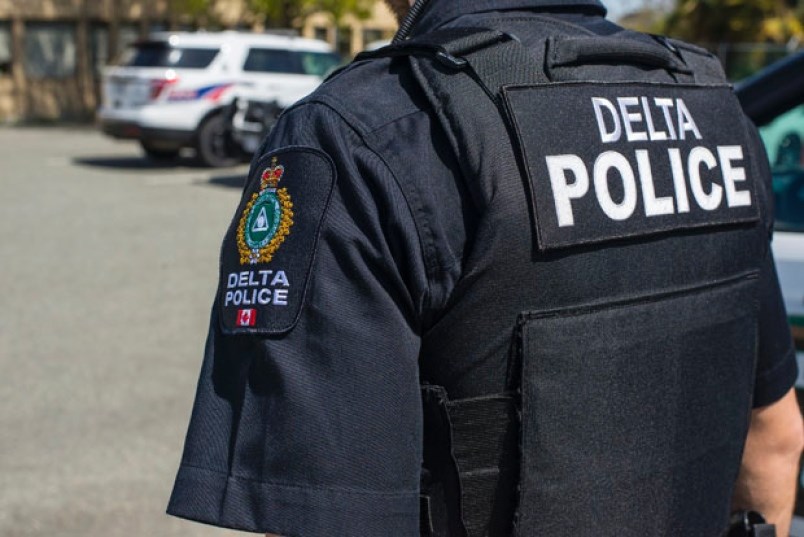If you need to determine is someone experiencing a mental health crisis poses a threat to themselves or others, there’s an app for that.
At least if you’re a member of the Delta Police, which is the first police force in British Columbia trained to use HealthIM, a new technology created to help assess individual mental health meltdowns already in use by several other police detachments across Canada.
“The tool is fairly simple to use,” said Sergeant James Sandberg, who heads up the department's Mental Health Unit. “The officer would enter the subject’s name and date of birth and, if the person had been previously assessed, that information will be there.”
And even if it isn’t, the software provides cops with specific questions regarding intoxication, irritability, hallucinations and violence, and then offers feedback on whether the person requires apprehension under the B.C. Mental Health Act or if other community-based alternatives are a better option. After answering the questions, the app provides a score out of 10 for the person — one being low risk and 10 being extremely high. Possibly literally. The app was specifically designed for use in law enforcement environments by an otherwise untrained police officer and uses objective observations of behaviour. Officers are not asked, for example, to guess if someone has schizophrenia or severe depression.
“An officer will take about five minutes to input the pertinent data,” said Sandberg. “The app then securely forwards a report to Surrey Memorial Hospital, which is the hospital to which Delta patients attend when dealing with a mental health crisis.”
Healthcare practitioners receive the clinical summary, which is encrypted in compliance with federal and provincial privacy legislation, and so should be able to better prepare for the arrival of the person in crisis.
The number of mental health calls police respond to is difficult to quantify because some are obvious, such as calls for attempted suicide, while others don’t always fall easily into the mental health category. Previously, officers averaged 120-130 minutes wait time per mental health apprehension. Sandberg said that other police departments using the app – which include Manitoba RCMP and several Ontario Provincial Police departments -- have seen significant decreases in wait times, and he believes Delta could see the average wait time cut in half.
He notes that while police may pick someone up under the Mental Health Act, a physician ultimately determines whether or not someone should be admitted to hospital for care or released back into the community. Officers can also overrule the opinion of the software if they disagree with the assessment, and HealthIM does not make a formal diagnosis.
“Our community partners, like the Delta Police, play a critical role in helping us provide quality, timely care to our patients,” said Dr. Craig Murray, Head of Emergency Medicine at Surrey Memorial Hospital. “This new technology means we can make sure we have the right resources in place, so when these vulnerable patients arrive we are ready to provide them with the care and support they need.”
The adoption of the new tech comes at a time when police encounters involving a mental-health factor are on the rise across the province. According to a review published by the B.C. Coroners Service last June, the number of apprehensions under the B.C. Mental Health Act increased from 13,592 in 2015 to 18,357 in 2017. The report also examined 127 deaths between 2013 and 2017 that occurred during or within 24 hours of an encounter with police.
“More than two-thirds or seven in 10 of these deaths involved a mental-health issue,” the report states. “Of the 127 deaths, 61 percent experienced challenges related to illicit drug use.”
Twenty-one deaths were reportedly caused by use of force from police and another 56 were due to suicide.
“Persons with mental health and substance use concerns (MHSU) are increasingly interfacing with police agencies,” the report states. “The high numbers of encounters for MHSU have, by default, made policing part of the mental health system in B.C. Persons in crisis are often unpredictable and police officers need more support when engaging with persons experiencing mental health issues.”
In addition to reducing hospital wait times and improving communication with staff at the hospital, use of the app is expected to help increase the speed of follow-up care. Previously, when an individual was apprehended, the officer would write a report detailing the interaction to the Delta Police Mental Health Unit. When they returned to work, they would review the report and person’s history, often making referrals to appropriate community agencies.



